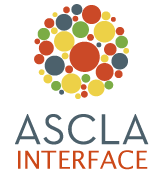By Glennor Shirley, library coordinator, Maryland Correctional Education Libraries
On Monday, Jun. 28, the Libraries Serving Special Populations Section (LSSPS) of ASCLA hosted a tour of library and education departments at Jessup Correctional Institution (JCI) as part of the section’s programming activities at the 2010 ALA Annual Conference in Washington D.C. I, along with JCI Warden John Wolfe, accompanied the tour group of 22 librarians while Ruth Mewborn, librarian at JCI and Patuxent Institute and Library Services to Prisoners Forum (LSPF) Chair Diane Walden, answered questions on library services to prisoners.
We had timed the visit so there would be a brief overlap with the inmates using the library, but we were held up in traffic and arrived in the library around the time the inmates were preparing to leave for their mandatory cell count. (Inmates must be at a certain location to be counted). I did ask one of our inmate workers to briefly describe his job in the library. The photograph accompanying this article was taken by one of the inmates who got special permission to stay longer in order to take the photographs.
The visiting group, some of whom came out of mere curiosity, asked questions about our safety and comfort level working in a prison, inmates’ reading interest, and censorship. I responded that I had more incidences of challenging behaviors when I worked in public libraries than I experienced in prison and that the library officer ensured good conduct. While we adhere to the ALA Bill of Rights, institutions often place restrictions on some materials eg. pornography, materials that appear gang related, materials on how to build bombs, or attack strategies etc. There was much debate on censorship, but we pointed out that for all institutions, public safety and public opinion were paramount to the security staff, and consequently the censorship issue would likely be an ongoing battle for many prison librarians.
As they looked at our databases, our space and our collection, the seasoned prison librarian visitors were busy comparing our library budget, statistics, collection and procedures to the prison library they operate in their state. For example, Colorado-based attendees noted that their collection was much larger as they adhered to the Library Standards for Adult Correctional Institutions, published in 1992 by ASCLA.
The visitors also toured the education department and saw the ESOL, GED, and Computer rooms. They saw only the tools of the trade as the inmates had already left the classrooms for their cells in order to meet the mandatory “count”.
JCI was recently transformed from being a maximum security prison to an institution with mostly parole violators, although a small number of maximum security inmates remain. Our experience, borne out by statistics, shows that inmates in maximum security institutions place high demands on legal reference services because at this level their intent is to get back into the courts to seek reduced sentences. Parole violators are interested in information on community resources for reentry or to regain benefits that they lost because of incarceration. Common inquiries include: unemployment insurance, starting a business, funding sources to start a business, grant writing, getting a GED, social security number, driver’s license, restoring credit, purchasing a car, housing information, food stamps, addiction centers, and many more directory type information. There is also a high demand for popular reading materials.
Programs at JCI’s library include book discussions as well as guest speakers on licensing, financial literacy, legal workshops and other relevant topics. JCI is also one of the correctional libraries that will participate in this year’s One Maryland One Book (OMOB) program, an event offered by the Maryland Humanities Council. This year’s OMOB selection is Outcast United, by Warren St. John. The author plans to visit JCI on September 27, 2010.
The budget deficit in the state of Maryland as illustrated by this chart has impeded our efforts to build a suitable collection to fully accommodate the information needs of the new residents. We hope our present reliance on donations from the Maryland library community is a temporary gap. In the meantime we are exploring grant opportunities.
